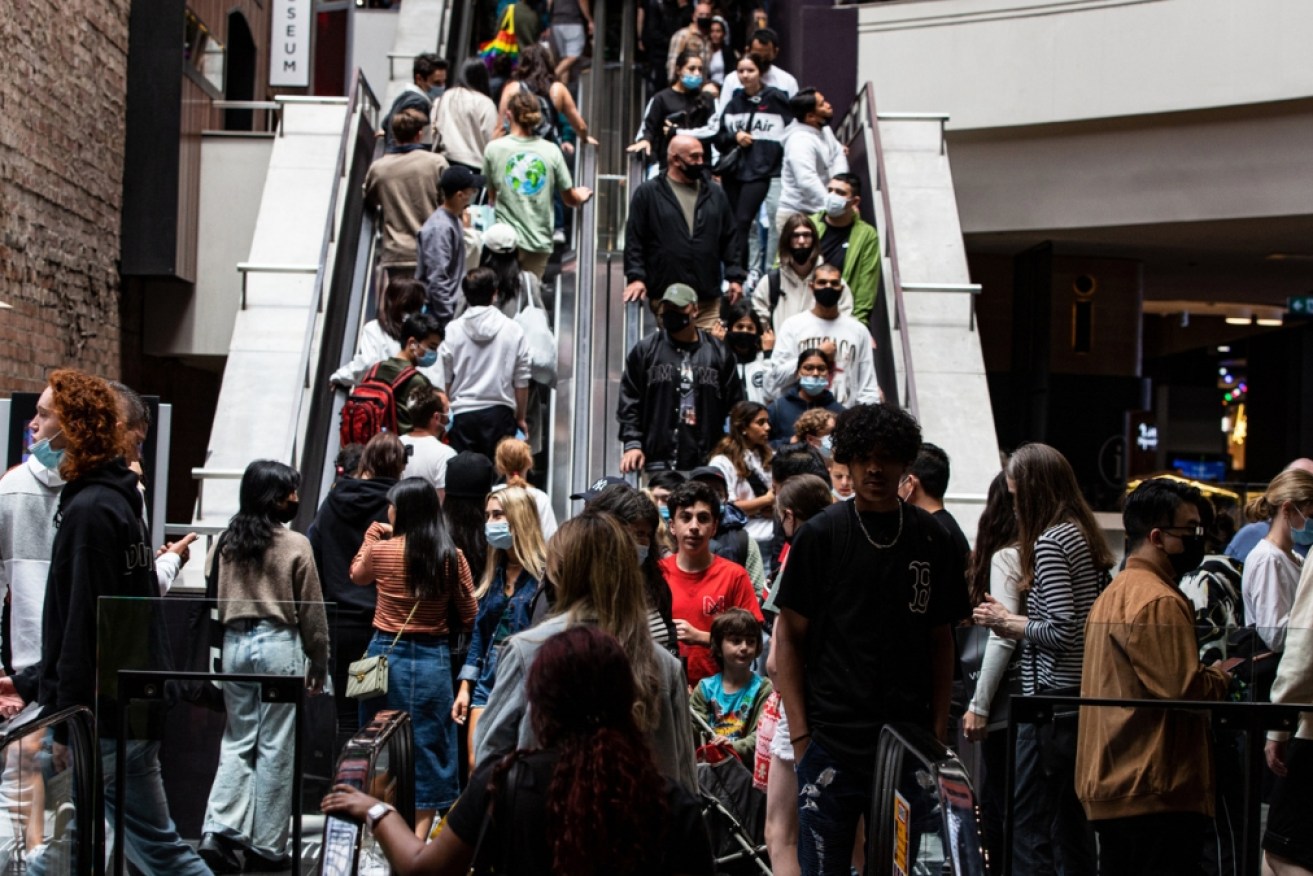AI, sustainability and physical stores: What shoppers want in 2024


Shoppers might be missing what's right under their noses when it comes to AI. Photo: Getty
A new study claims consumers want more artificial intelligence (AI) in their shopping experience, along with sustainability and physical stores.
IBM Institute for Business Value’s 2024 consumer study found three out of five consumers would like to use AI applications as they shop.
About four in five consumers who said they haven’t used artificial intelligence for shopping yet would like to see how it can help them research products or get product information, look for deals and promotions or get service, ask questions, and resolve issues.
Queensland University of Technology consumer and retail expert Gary Mortimer told TND it’s clear many shoppers don’t realise they’re probably already engaging with AI.
Data tracking already allows retailers to target consumers with ads for products they’re more likely to buy based on their shopping history, and assistant chatbots are almost a standard function for many retail shopping websites.
“Many retail businesses are already using AI and machine learning behind their data to identify undetected patterns of purchasing behaviour, and therefore target customers more appropriately and more specifically,” he said.
“I think Australian consumers are very much well aware [that] every time they scan their rewards card or their credit card, that data is being tracked and used. And that’s generally part of the terms and conditions of loyalty programs, rewards schemes and any other sort of credit card process.
“Personalisation is vitally important, and I think technology enables that personalisation.”
Room to grow for AI in shopping
Mortimer said there is still room for AI to further smooth the shopping experience.
IBM’s data shows while consumers want more chatbots, only about one-third of consumers who have used chatbots and virtual assistants are satisfied with the experience.
Almost 20 per cent were so disappointed in previous experiences that they don’t want to use them again.
Mortimer said the technology is still in its “embryonic” stage, and would take time to recognise a customer message’s ‘tone’ in addition to words.
Loyalty program data is mostly used to offer supermarket consumers deals on products they have previously bought, or similar options.
Mortimer said AI could take the process a step further by analysing previous purchasing behaviour and making offers on products that would complement previous purchases.
Retailers are constantly finding ways to track your activity, both in store and online. Photo: Getty
“A good example would be determining that Customer A buys Arborio rice, chicken stock and diced Italian tomatoes every Friday,” he said.
“AI would determine that they’re making a risotto. So rather than sending them an offer for a product they’re going to buy anyway, [it could] send them an associated offer, maybe an Italian wine or an Italian dessert.”
For in-store shopping, AI can also be used in conjunction with near-field communication (NFC) technology to personalise a shopper’s experience.
This means when a shopper walks in, their phone’s Bluetooth could automatically connect to the store’s system, letting staff know their name and what their previous purchases were to provide more personalised service.
Shoppers want to pay more for sustainability, but can’t
In addition to increased used of AI, shoppers want brands to be more sustainable.
IBM found 78 per cent of consumers said sustainability is important to them when choosing a brand.
Of these consumers who care about sustainability, 73 per cent said they are willing to pay more for sustainable products – up from 50 per cent in 2022.
But Mortimer said previous research shows while shoppers have the right intentions, cost-of-living pressures mean many will fold to cheaper but less sustainable options.
“The academic, peer-reviewed literature shows that we’re unwilling to pay more,” he said.
“The barriers that manifest between intentions and behaviours [are often] simply financial barriers and the cost of living.
“Standing in the supermarket and you’re looking to buy an eco-friendly laundry detergent, which is $3 more than the mass-produced non-eco-friendly, we always buy the cheapest product because families are struggling with the cost of doing business.”
Brick-and-mortar stores still going strong
Shoppers want what they want, when they want it – and in many cases, online shopping can’t keep up.
Two in three consumers shop for products in person, and 73 per cent say they rely on physical stores to buy goods, IBM found.
Mortimer said this data reflects previous findings, which show the convenience of shopping from the couch doesn’t always bring immediate gratification.
Shopping online can also become inconvenient when products turn out to be different than expected, and need to be returned; he said between 20 to 30 per cent of online purchases are refunded or returned, a higher rate than seen by physical stores.

Brick-and-mortar stores are far from dead despite the rise of online shopping. Photo: Getty
“When you buy something online, you want to get it delivered as quickly as possible; same day or the next day. You go to a store, you can consume it immediately, and you can wear it immediately,” Mortimer said.
“So buying online, there’s still that delayed gratification. And being here in Australia, where we have a lot of land mass and a very small population, it does take time to get products to your door.
“The other one is that if something goes wrong – it’s the wrong size, doesn’t fit right, doesn’t work, it’s damaged in some way – I don’t want to go back to a post office, put it in a post box and then send it back.”








